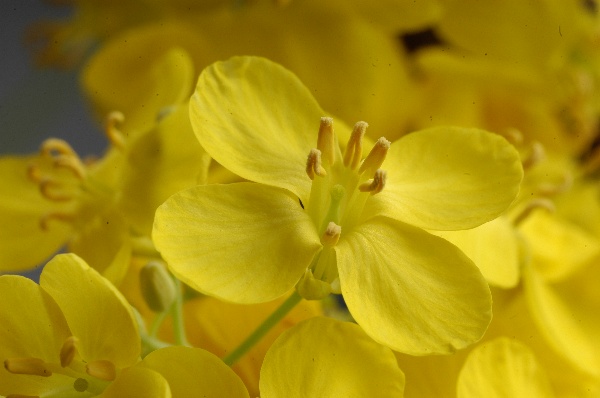“The KWS Group performed very well in many markets in the year under review. Our portfolio proved to be extremely powerful and competitive. We’d like to express our thanks for the trust placed in our varieties,” said Chief Executive Officer Hagen Duenbostel about the company’s performance in fiscal 2016/2017.
KWS increased its contribution margin by 4.6% at June 30, 2017, on the back of a slight year-on-year improvement in the cost of sales ratio. In accordance with its long-term corporate strategy, KWS continued to increase its expenditure on research and development – the R&D intensity was at 17.7% – and on distribution in line with the increase in net sales. Administrative expenses remained almost constant. The KWS Group’s EBIT was €131.6 (112.8) million, or around 16.7% over the previous year, mainly due to the growth in net sales. The EBIT margin rose to 12.2% (10.9%). The sale of our seed potato operations last year had a positive impact on that. In addition, there were lower expenses as part of receivables management.
Segment reports: growth in net sales in South America and Europe
In the year under review, KWS again increased net sales in the Corn Segment. They were €825.3 (795.2) million, an increase of 3.8%. In addition to the growth of the corn and soybean seed business in South America, the oil seed business in Europe also contributed to this success. There were slight regional drops in net sales: Net sales of corn seed in Europe, North America and China declined, reflecting the reduction in cultivation area there. The segment’s income was €58.2 (63.6) million. The main factor influencing the segment’s income remained the increase in function costs: We increased expenditure on distribution and on research and development – which are key to enabling our future growth – by a total of €15 million.
KWS grew operational business at the Sugarbeet Segment in the year under review thanks to consistently good variety performance. Moreover, the segment benefited from a marked increase in cultivation areas, particularly in the EU and in Eastern Europe. Net sales rose by 3.4% to €454.6 (439.5) million. Following the decision made the previous year, sale of our seed potato business to Stet Holland B.V. was successfully completed. The disposal resulted in a reduction in net sales, but that reduction was more than compensated for by our sugarbeet seed business. After adjustment for net sales from potato business, the segment’s net sales from sugarbeet seed rose by 10.2%. KWS grew its net sales mainly in the EU 28 and Eastern Europe. KWS remains the world’s clear market leader by far, with a share of 55%. The segment’s earnings improved, mainly as a result of higher net sales from sugarbeet seed. The segment increased its EBIT to €150.9 (118.6) million, also thanks to the positive impact from sale of our loss-making seed potato business.
Net sales in the Cereals Segment fell to €109.3 (118.0) million due to effects from the devaluation of pound sterling and lower net sales of rye in Germany. Our wheat business was able to follow up on the results of the previous year thanks to the consistently good variety performance and relatively good wheat prices compared to those for other types of cereal. Net sales from rapeseed and barley in the segment declined slightly. Rye remained the mainstay of the Cereals Segment, contributing 40% of net sales, followed by wheat, barley and rapeseed. Nevertheless the lower cost of sales year on year had a positive impact on the segment’s earnings and was able to offset the negative impact on them from the reduction in net sales. While selling expenses were reduced in line with the decline in net sales, the research and development expenditure remained at the level of the previous year. The segment’s EBIT rose to €10.3 (9.0) million, giving an EBIT margin of 9.4% (7.6%).
The Corporate Segment’s net sales are generated primarily from our farms in Germany. In the past fiscal year they were €4.8 (4.1) million. All cross-segment costs are also allocated to the segment. They include expenses for all central functions of the KWS Group and for long-term research projects. As a result, the segment’s income (EBIT) is always negative. It was
€ –60.6 (–50.1) million in the year under review.

